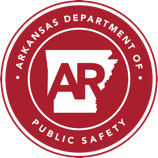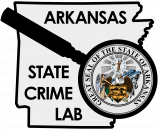The Arkansas State Medical Examiner’s Office is a component part of and is housed within the Arkansas State Crime Laboratory. It is a referral office and laboratory whereby the officials of the 75 counties—as well as the Arkansas State Police and other judicial and legal officers—submit cases of sudden and unexpected deaths due to trauma and natural disease, including categories such as self destructive acts, industrial accidents, motor vehicle accidents, and any case where potential criminal activity including homicide may be suspected or presumed.
More than 1,500 cases are referred each year to the Medical Examiner’s Office. Over 1,200 of these cases undergo complete autopsy examination. The office also provides forensic investigators who transport individuals from the county of death to the Medical Examiner’s Office. The Medical Examiner’s Office also provides expert testimony in criminal courts throughout the state. This also occasionally involves juvenile and federal courts.
In addition to the medical examiners and staff of investigators, a case coordinator and secretarial staff are employed to type autopsy protocols. Histology technicians prepare microscopic slides for the doctors.
The autopsy room is served by a Forensic Technicians and several deputies who assist the pathologist in autopsy examination and also provide x-rays of bodies.
The Medical Examiner’s Office enjoys the collaboration of experts in fields such as Anthropology, Odontology (Dentistry), and Pediatric Pathology. The University of Arkansas for Medical Sciences Department of Pathology is also available for consultations.
The office was first accredited by the National Association of Medical Examiners (NAME) in 1976, The most recent period of accreditation began August 15, 2015 and extends until August 15, 2020.
How To Request a Death Certificate:
When an examination has been performed by the Crime Lab, a certificate of death is issued with the deceased when they are released to the funeral home, unless the death was pronounced out of state. A death certificate serves to certify that a death has occurred, and even if it does not have a specific cause or manner of death listed initially (“Pending”), it is still considered an official document and is registered at the County Health Department and sent to the State Health Department, Bureau of Vital Records. Copies of the death certificate can be obtained by families either from the funeral home or by contacting Vital Records directly (501‑661‑2336).
If the death certificate has been ruled “pending”, when the Medical Examiner has made a final ruling as to the cause and/or manner of death, he will issue a supplemental death certificate, which is then mailed to the State Bureau of Vital Records in Little Rock. This may take weeks or, in some instances, months because of the complexity of the case as well as necessary laboratory and investigative studies.
Missing Persons
NamUs is a clearinghouse for missing persons and unidentified decedent records. NamUs is a free online system that can be searched by medical examiners, coroners, law enforcement officials and the general public to solve these cases.
The Unidentified Persons Database contains information entered by medical examiners and coroners. Unidentified persons are people who have died and whose bodies have not been identified. Anyone can search this database using characteristics such as sex, race, distinct body features, and even dental information.
The Missing Persons Database contains information about missing persons that can be entered by anyone; before it appears as a case in NamUs, the information is verified. NamUs provides the ability to print missing persons posters and even map out possible travel routes in a search for a missing person. Other resources include links to state clearinghouses, medical examiners and coroner offices, law enforcement agencies, victim assistance groups, and pertinent legislation.
When a new missing person or unidentified decedent case is entered into NamUs, the system automatically performs cross-matching comparisons between the databases, searching for matches or similarities between cases.
NamUs also provides free DNA testing and other forensic services, such as anthropology and odontology assistance.
Please contact the Arkansas State Crime Laboratory about submitting a family reference sample for upload into the National Missing Persons DNA Database.


